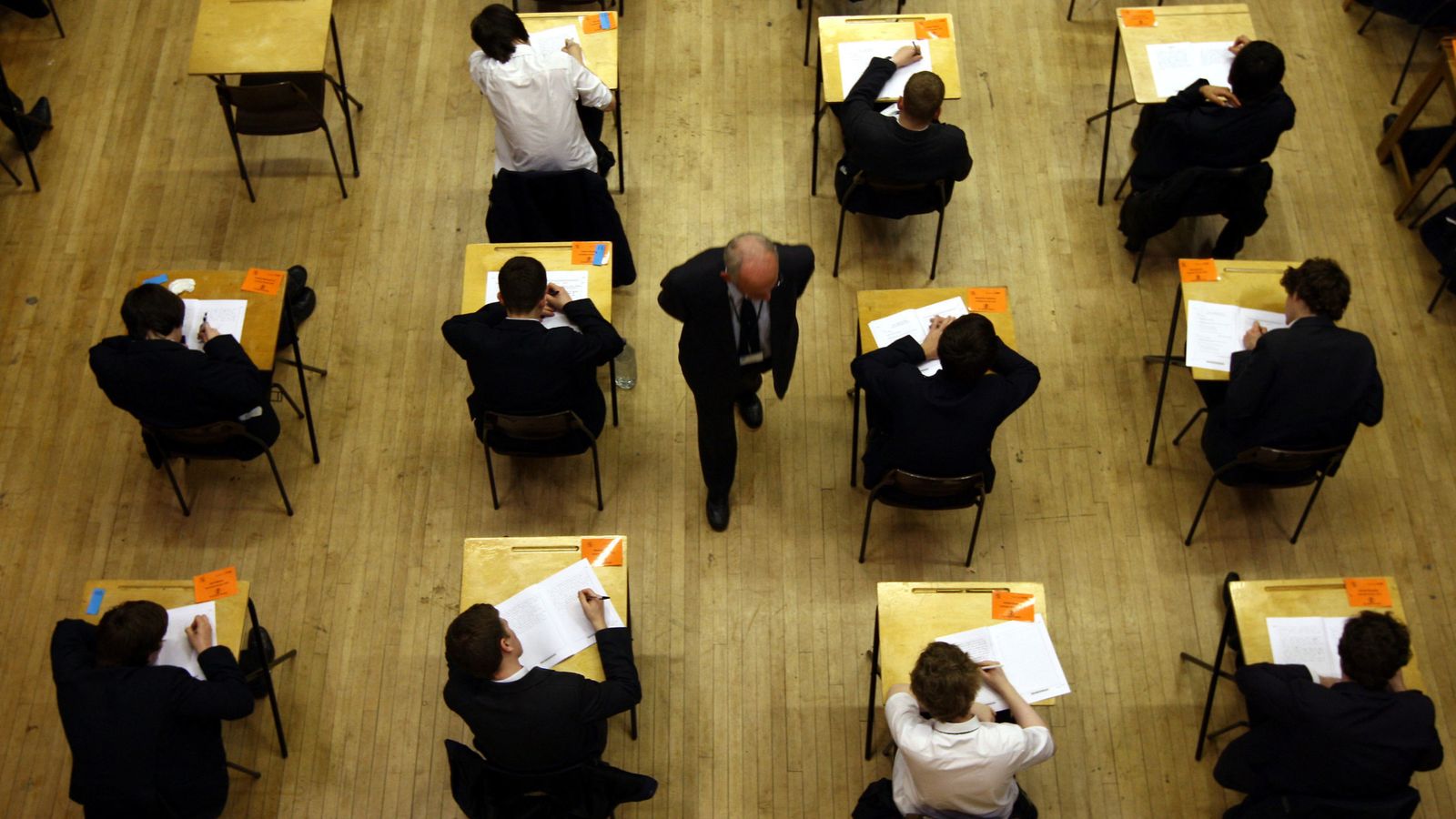Thousands of students could miss out on their first choices for university in what is expected to be the most competitive year ever for courses.
The proportion of pupils receiving top grades could fall by almost 10 percentage points compared with last year – a prediction backed by the government that expects a similar trend in 2023.
It comes after students in 2021 were given grades determined by teachers rather than exams due to the COVID-19 pandemic.
Professor Alan Smithers, director of the Centre for Education and Employment Research at the University of Buckingham, said there could be 80,000 fewer top grades – A* or A – awarded than in 2021, meaning some 40,000 students could miss out on their course or university of choice.
“Universities have reacted to the teacher-assessment boom in top grades by raising requirements and reducing firm offers. For many of this year’s school leavers the hard work did not end with A-levels, but begins again on results day in the chase for the coveted places,” he said.
“As a result of bringing down the top grades, about 40,000 applicants could miss out on their first choices, although it could be as many as 60,000.”
Prof Smithers has predicted that the 2022 pass rates could see 35% of candidates receiving an A* or A grade, compared with 44.8% of entrants last year.
Few schools and colleges will get better GCSE and A-level results than last year, minister warns
GCSE and A-level results could be hit as exam board staff to go on strike
Exams 2022: Will students get a fair shot at success after COVID?
The overall pass rate (grades A* to E) in 2021 was 99.5%, and some 88.5% received a C or above, up from 88.0% in 2020 and the highest since at least 2000.
Read more:
Few schools and colleges will get better GCSE and A-level results than last year
He believes this month will see 82% of candidates get an A* to C grade, and 98.5% get an A* to E grade.
A spokesman for exams regulator Ofqual said there is “no link between grades and the supply of places”.
He said: “While there may be fewer top grades this year compared to 2021, when a different method of assessment (teacher-assessed grades) was used, universities understand what grades will look like overall this year and have made offers accordingly.”
Follow the Daily podcast on Apple Podcasts, Google Podcasts, Spotify, Spreaker
Sarah Hannafin, senior policy adviser for school leaders’ union NAHT, called on universities to be flexible and work with students “to get them on the right courses and paths for their futures” having taken account of “the disruption this year’s students have experienced”.
A Department for Education spokesman said: “Competition for places at the most selective universities has always been high and this year is no different – but there will always be lots of options for students either at another university, through clearing or high-quality vocational options that are just as prestigious and rewarding as academic routes.”






















